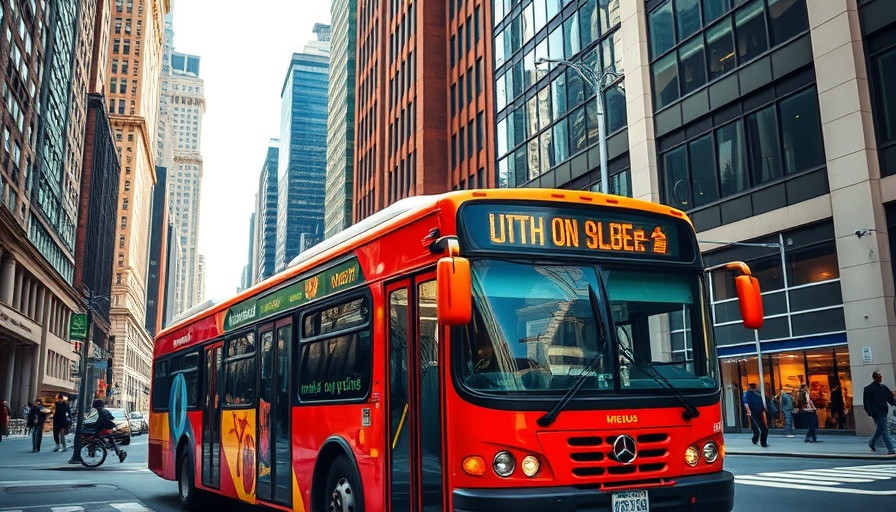
Metrobus Commuters Stand Up Against Payment Changes
On June 30, 2025, metro commuters in Johannesburg are expected to stage a significant protest, gathering at the Metrobus head office in Braamfontein to voice their frustrations regarding a newly implemented payment system. This protest reflects wider concerns over the accessibility and affordability of public transport in South Africa, particularly amidst ongoing discussions about service delivery and economic recovery.
The Mechanics of the Controversial Payment System
Central to the commuters' grievances is the recently adopted Tap-In, Tap-Out payment method that charges users based on the distance traveled. While touted as a modern solution, many commuters argue that it inadvertently increases their travel costs, especially for those who change routes frequently. Frustrations mounted when users discovered discrepancies in fare calculations that led to multiple charges, compounding the feeling of injustice in an already strained economic environment. As several users pointed out, the old system provided more predictable and manageable costs.
Larger Context: Public Transport and Service Delivery in South Africa
This issue is emblematic of broader service delivery protests across South Africa as citizens demand accountability from their local governments. The dissatisfaction with Metrobus is indeed a reflection of systemic issues within the country's transportation framework. Coupled with high unemployment rates and growing dissatisfaction with government policies, including the ANC's handling of public services, the protests symbolize a significant moment of reckoning for South Africa's ruling party.
Accessibility Concerns: An Overlooked Issue
Another critical aspect of the protest revolves around the inadequacy of the new fleet's design for individuals living with disabilities. Many commuters voiced their concern that the lack of accessible features compounded the existing inequity in public transport services. The crowd's response highlights the need for an inclusive approach to policy-making, ensuring that considerations for all demographic segments are incorporated into urban infrastructure development.
Commuters’ Voices: A Call for Accountability
The protesters assert that they are not merely opposing a payment structure; they are calling for a systemic change. Commuters expressed that continued delays and an inefficient service compromise their daily lives, causing them to arrive late at work. This sentiment resonates with many South Africans who grapple with the burdens of a public transport system often described as unreliable and poorly managed.
Comparative Analysis: Public Transport in Crisis
Considering public transport systems worldwide, it’s clear that South Africa's struggles are not unique. Cities like Paris and London have long faced criticism for their transit fees, yet they often invest in facilitating user convenience and accessibility. The ongoing protests in Johannesburg signal a need for similar considerations to be placed on the agenda; public systems must adapt to the needs of all users or risk greater civil unrest.
Looking Forward: Future Possibilities for Change
As the protest unfolds, it presents an opportunity for dialogue among commuters, Metrobus officials, and policymakers. Addressing these concerns could lead to a revamped public transport system that not only enhances operational efficiency but also embeds justice and equity into its design. Moving away from punitive systems that disproportionately affect the vulnerable is crucial in fostering trust and engagement with public transport.
Conclusion: Your Voice Matters
As the situation develops, all eyes will be on the outcomes of the protest. Metrobus commuters display the kind of resolve that can usher in the changes needed. Individuals looking to enhance accountability in public services should engage in these discussions actively; your voice can spark the change necessary for more accountable governance and equitable service delivery. Stand up and unite for lasting improvements in South Africa's public transport system!
 Add Row
Add Row  Add
Add 




Write A Comment